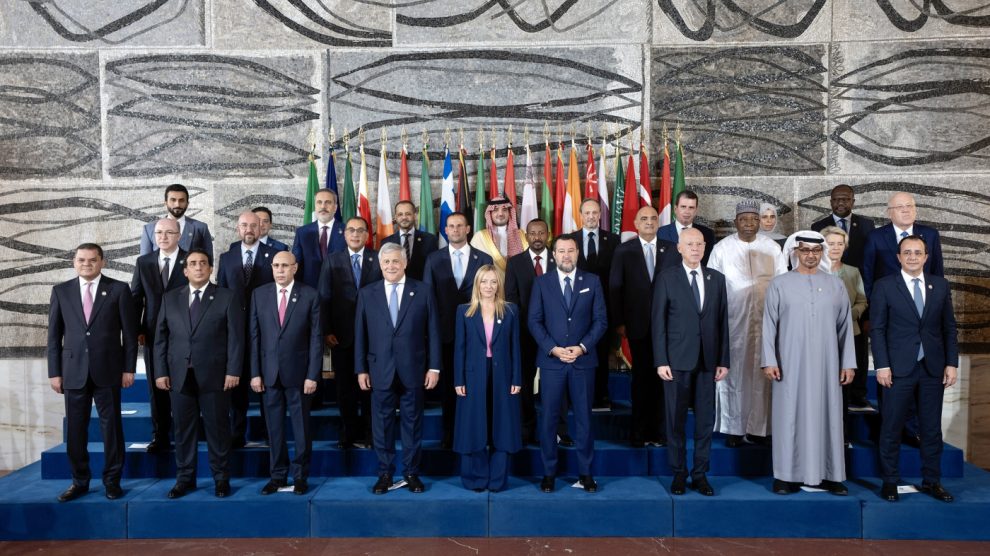All roads lead to Rome. On Sunday, the Italian Ministry of Foreign Affairs government oversaw the first Development and Migration Conference, which brought together leaders from the enlarged Mediterranean to flesh out a more effective approach to the migration issue. The one-day event yielded an agreement on what steps to take to counter illegal migration flows while tackling the root causes of people emigrating – through a mixture of cooperation and investments that bears the Italian government’s hallmarks all over it.
- The Conference took place right before an intense week of international appointments, which included Monday’s summit at the United Nations’ Food and Agriculture Organisation (headquartered in Rome).
- Over 20 countries vowed to make funding available and support what Prime Minister Giorgia Meloni called the “Rome Process” to unfold over the course of several years.
- The next step will be a donor conference, with countries such as the United Arab Emirates already vowing to provide $100 million in aid.
An Italian job. Prime Minister Giorgia Meloni celebrated the result, which “exceeded expectations,” and remarked on Italy’s role as a “bridge between Europe, Africa and the Middle East.” Rome “has what it takes to play a leading role” not only because of the attention level it demonstrates through investments – Italy-Africa interchange has been growing at an average rate of 7%, reaching €70 billion – but because it employs a “non-predatory cooperation” model.
- That’s the essence of the upcoming Mattei Plan, a framework hinged on a combination of migration cooperation and energy and development investments to promote mutual growth and address several issues in parallel.
Who was there? In attendance were leaders of almost all the States from the Mediterranean Sea’s southern shores, as well as from the Middle East and the Gulf, EU first-landing countries and partners from the Sahel and the Horn of Africa. Heads of European and international institutions, including several United Nations agencies, also took part.
- Five Heads of State (Cyprus, Libya, Mauritania, Tunisia, United Arab Emirates) and eight prime ministers (Algeria, Egypt, Ethiopia, Jordan, Lebanon, Libya, Malta, Nigeria) were in Rome, along with eight ministers (Bahrain, Greece, Kuwait, Morocco, Oman, Qatar, Saudi Arabia, Turkey).
The Tunisian pathway. European Commission President Ursula von der Leyen, who was also in attendance, touted the new strategic partnership between the European Union and the African State – which PM Meloni spearheaded – as “a template” and “a blueprint for the future” for EU partnerships with other countries in the region.
- The partnership entails bolstering measures to curb irregular departures from Tunisia while aiding the government in Tunis through targeted energy and investment deals.
More (legal) migrants, less human smugglers. The Italian PM also marked a shift from her past rhetoric by stressing that the EU and Italy “need immigration,” and thus her government is open to taking more migrants in through legal routes. She also stressed the role of integration and called for “wide-ranging” collaboration to dismantle the trafficking networks.
- “If we are open to letting people in but then we don’t take care of the fate they will have in our nations, that is not solidarity […] At the center of migration flows are people, there are lives, hopes, suffering […] It is our duty to take care of the fate of these people.”
- Ms von der Leyen echoed her words. “We must crack down on traffickers and destroy their cynical business model. Opening new legal routes between our continents can create a real and safe alternative to dangerous sea journeys,” she said.




